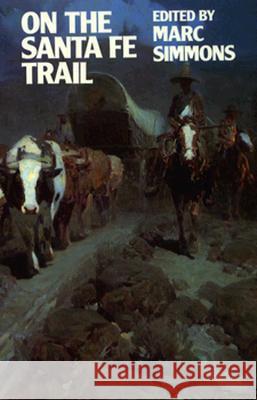On the Santa Fe Trail » książka
topmenu
On the Santa Fe Trail
ISBN-13: 9780700603169 / Angielski / Miękka / 1986 / 160 str.
On the Santa Fe Trail, a collection of first-hand accounts by nineteenth-century overlanders, offers an intensely personal view of that arduous trip. In retrospect, the history of the Santa Fe Trail--crossing forests, prairies, rivers, and deserts--seems overlayed with the gloss of romance and chivalry. It is set off by heroic attitudes and picturesque adventures. And it has left a deep imprint on one region of the American West. The trail crossed parts of five modern states--Missouri, Kansas, Oklahoma, Colorado, and New Mexico. From the perspective of the overland trade, those five are forever bound in historical communion. The route began in Missouri and ended, after almost a thousand miles, in New Mexico. But it was Kansas that claimed the largest share of the trail: from a beginning point at either Kansas City or Fort Leavenworth it angled across the entire state, exiting over four hundred miles later in the southwestern corner. It would be no exaggeration to say that trade and travel on the Santa Fe Trail derived much of its special flavor from the Kansas experience and that, in turn, the presence of the trail went a long way toward shaping the early history of the state. Many participants in this story, overlanders of various kinds, wrote down what they saw and learned on the way to Santa Fe. It is with that in mind that Marc Simmons has here collected a dozen narratives and reports from the middle years of the trail's history--from the early 1840s to the late '60s--that is, just after New Mexico had passed into American hands. It was a period of intense Indian-white conflict and before the establishment of rail lines along the route. The authors of these narratives--among them several teenagers, a Spanish aristocrat, an Indian agent, a German immigrant lady, a government scout, and a young New Mexican drover of the peon class--qualify as plain folk who, without quite intending to, got swept up in the westering adventure. Simmons has written an introduction to the collection and to each of the narratives.











